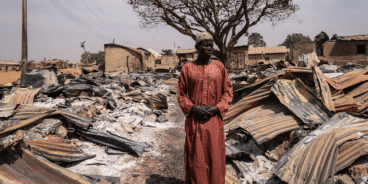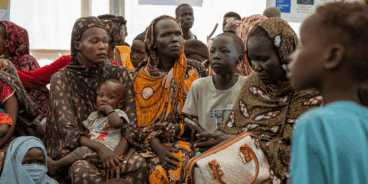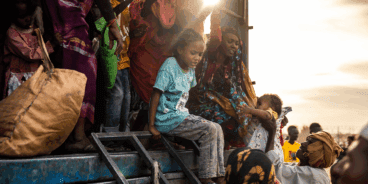
Atrocity Alert No. 50: South Sudan and Burundi
Atrocity Alert is a weekly publication by the Global Centre for the Responsibility to Protect highlighting and updating situations where populations are at risk of, or are enduring, mass atrocity crimes.
South Sudan
Despite the growing risk of famine, South Sudan continues to experience a rise in targeted ethnic attacks conducted by the South Sudanese army (SPLA) and pro-government militias. On 3 April, during an SPLA offensive to force rebels out of the town of Pajok, Eastern Equatoria state, the SPLA allegedly killed at least 17 people. As a result, 6,000 civilians, mainly women and children, fled to Uganda between 3 and 7 April. According to the UN Refugee Agency, those who fled testified that during recent assaults pro-government forces have slit people’s throats and shot civilians trying to escape. The UN Mission in South Sudan (UNMISS) attempted to follow up on these reports, but was denied access to the Pajok area. On 8 April the UN Humanitarian Coordinator in South Sudan “demanded that all parties to the conflict uphold their responsibilities to protect civilians.”
On 10 April the SPLA and government-aligned ethnic Dinka militia groups attacked residents in the town of Wau, targeting members of the Lou and Fertit ethnic groups. UNMISS reported that at least 16 civilians were killed. Approximately 8,000 civilians were displaced by fighting, while a local resident described how “armed militias are moving from house to house,” and described the military operation as “an ethnic crackdown.”
A year and a half after the 2015 peace agreement brought a formal end to the conflict in South Sudan, civilians continue to be targeted because of their ethnic identity and perceived political loyalties. Despite increased armed violence, the UN Security Council has still not imposed an arms embargo on South Sudan.
Burundi
On 5 April a disturbing video surfaced of the Imbonerakure, the paramilitary youth wing of Burundi’s ruling party, the Conseil National Pour la Défense de la Démocratie–Forces pour la Défense de la Démocratie (CNDD-FDD). The video, of an Imbonerakure gathering in Ntega, Kirundo province, shows rows of young men singing lyrics threatening to “impregnate the opposition so that they give birth to Imbonerakure.”
The UN has previously documented Imbonerakure perpetrating rape and other forms of sexual violence against female supporters of opposition parties, as well as women and girls attempting to flee the country. Despite initially denouncing the video as fake, the CNDD-FDD eventually verified the video’s authenticity, but declared the song to be inconsistent “with the morals or ideology” of the ruling party.
The emergence of the video comes amidst a new wave of extrajudicial killings, enforced disappearances and the torture of opposition members in Burundi. The Imbonerakure, who often work in collaboration with the intelligence services and the national police, have previously been deployed to intimidate and terrorize sections of the civilian population presumed to be supporting the opposition.
The CNDD-FDD should immediately disband the Imbonerakure. The government should collaborate with the UN, African Union and other international partners to help end the political conflict in Burundi. All allegations of serious human rights violations in Burundi, including sexual violence and rape, should be subject to independent investigation and the perpetrators held accountable.
Related Publications


Atrocity Alert No. 467: South Sudan, Israel and the Occupied Palestinian Territory and Venezuela
